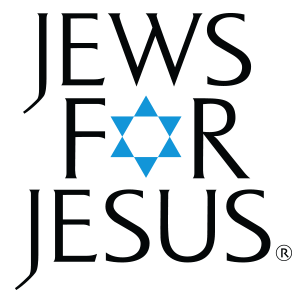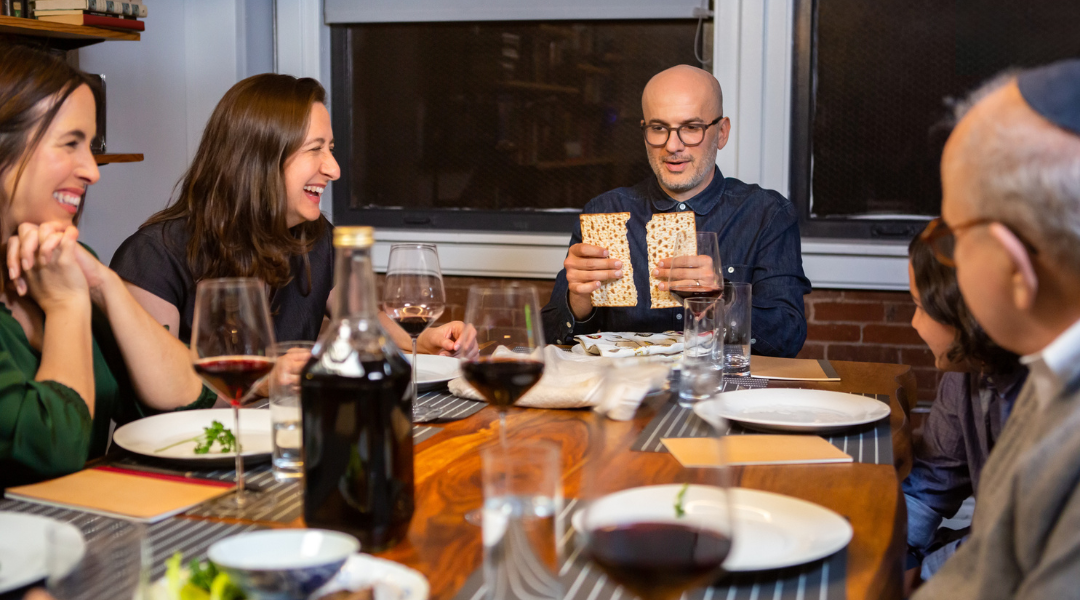How a Messianic Passover Is and Isn’t So Different
by Laura Costea | March 28 2023
In a calendar full of Jewish holidays, Passover shines brightly as the one that brings us closest together. Maybe that’s because it harkens back to the day God called His people out of Egypt. In our deliverance from a common enemy, the Jewish people were united like never before. Besides, there’s nothing like a 40-year camping trip to really help you get to know one another!
Exodus says that God gave our ancestors the tradition of Passover as a way of remembering (Exodus 12:14). We remember that He alone delivered us out of Egypt; He alone sustained us in the desert; and He alone would continue to sustain us throughout our history—if we would remember His love and trust Him.
I think it’s kind of amazing that after all these centuries and millennia, we’re still faithfully keeping the feast. Throughout all the changes and challenges Judaism has faced, Passover still unites us in a shared tradition and remembrance.
My own family tells stories of celebrating Passover long before I was born. My grandparents would gather the children together at Great-Grandma Rebecca’s house, where hungry tummies would wait for what felt like hours for Great-Grandpa Morris to arrive home (walking, not driving) from temple.
Today, my family’s Passover is a little more casual, though there are still some traditions that are worth waiting for. Matzah cake anyone?
And yet, some other Jewish people might wonder why we still celebrate Passover at all because my family and I are followers of Jesus. The assumption seems to be that we’ve abandoned Jewish belief and our people. So, shouldn’t we ditch Passover and celebrate Easter instead?
The most obvious answer to that question is that Jesus was a first-century rabbi who celebrated Passover with his followers. And if he is the Messiah of Israel, it would be pretty strange for his Jewish followers to stop celebrating the most important Jewish holiday.
Inviting Jesus to our Passover table sheds a new light of understanding on the elements.
But the more personal answer is that celebrating Passover, while knowing who the Messiah is, enhances the experience of the holiday. For us, inviting Jesus to our Passover table sheds a new light of understanding on the elements that have always been there.
If you’re curious what that looks like in practice, or if you’re a Jewish follower of Jesus maybe doing this “Passover + Jesus” thing for the first time, here’s a look at what is different (and mostly not so different) about a Messianic celebration of our holiday.
Bitter Herbs (Maror)
Today, many use parsley or horseradish. This element represents the bitter slavery our ancestors were under in Egypt. God knows we are quick to forget, and He wants us to remember what life was like before He called us out to Himself.
A Roasted Lamb Shank Bone (Pesach)
Today, many homes substitute a lamb shank bone with a chicken bone, but on the first Passover night, and for every year after that, our ancestors were commanded to sacrifice a lamb, which was called the Pesach. The bone we include on our plate symbolizes this sacrifice.
The lamb to be sacrificed had to be perfect and without spot or blemish. Interestingly, this is how Pilate, the governor who presided over Jesus’ trial, described him saying, “He has done nothing that is worthy of death” (Luke 23:15).
Sometimes silence is louder than words, and the absence of the lamb on our plates today says something. For followers of Messiah, it reminds us that he was the ultimate Passover lamb.
Charoset
This element represents the mortar used to build bricks for Pharaoh and is made with fresh or dried fruit. We know that God saw His people’s heavy burden and lifted it off them. Later, speaking about the Exodus, He says, “I relieved his [Israel’s] shoulder of the burden, his hands were set free from the basket” (Psalm 81:7).
Most of us don’t know what it’s like to build bricks using mortar and clay, but we do know how it feels to be heavily burdened. God hears our cry too.
A Vegetable (Karpas)
Lettuce is commonly used and represents how the Jewish people initially prospered in the Promised Land. We can thank God that we are living in an age where we get to see our people coming home to the land of Israel, just as God promised.
A Roasted Egg (Betzah)
The egg represents mourning and reminds us of the destruction of the Temple. This element can remind us that Jesus foretold the destruction of the Temple, and he also said the time was coming when we would worship neither on a mountain nor in Jerusalem, but that “true worshipers will worship the Father in spirit and truth” (John 4:23).
Unleavened Bread (Matzah)
Unleavened bread reminds us that when God made a way, they would have to leave in a hurry. They were instructed to prepare this meal so hastily that they would not even have time to allow their bread to rise!
Today, the way that matzah is baked gives it an appearance of stripes and piercings, which can remind us of another Messianic prophecy fulfilled by Jesus: “He was pierced.… The chastisement for our shalom was upon Him, and by His stripes we are healed” (Isaiah 53:5).
A tradition that trumps Mama’s matzah cake is the hiding of the afikomen. Three pieces of matzah are held together, and the middle piece is broken and wrapped in a cloth. This broken and wrapped piece of matzah is then hidden so that any children present will look for it later.
Jesus was broken, wrapped in a mourning cloth, hidden in a tomb for three days, and then found alive!
Believers in Jesus see an obvious symbolism here: Jesus was broken, wrapped in a mourning cloth, hidden in a tomb for three days, and then found—alive! We also remember that he called himself “the bread of life” (John 6:35).
Wine or Juice
Four cups are included in the meal, each with its own meaning. At the Passover meal, Jesus shared with his students, “He [Yeshua] took the cup after the meal, saying, ‘This cup is the new covenant in My blood, which is poured out for you’” (Luke 22:20). He took a tradition we have always kept and gave it new meaning.
Praise (Hallel)
You may like to end your meal by praising God together with the people at your table, either by singing a hymn, or reading aloud from the book of Psalms, or a combination of both. Often Psalms 113–118 are used.
An Old Story—Completed
The idea that a firstborn son would have to be given to God goes all the way back to our earliest patriarchs: Abraham and Isaac. Those familiar with the story will remember that God asked Abraham to sacrifice his son, and Abraham went willingly—but Isaac lived. When Abraham lowered the knife, he was able to breathe again. God had provided a sacrifice.
Today, we can breathe in that same peace that Abraham had. Our word for peace, shalom, can also mean “completeness.”1 Is it possible that God always knew He would be the One to complete what Abraham started on the mountain by the giving of His own Son?
So far from competing with our yearly Passover traditions, our faith in Yeshua—the one who died and was resurrected—completes them.
The Final Element
In the same way that God completed the rescue work of Passover, we can complete our act of setting the table by bringing the one element that only we can bring. It’s the same element our ancestors learned in the desert and the same element Abraham brought up the mountain: an active trust in the God who chose us.
When my family invites Yeshua to our Passover table, we have faith that he will come in and dine with us (Revelation 3:20). Sometimes we even set an empty chair at the table for him (as historically has been done for Elijah).
And yet, God must have known the element of trust isn’t as easy as bringing lettuce and eggs. There are very real fears waiting to threaten our faith each day from the moment we walk out our front doors. That’s why He told Joshua and the Israelites when they were finally ready to enter the Promised Land, “Do not be terrified or dismayed, for Adonai your God is with you wherever you go” (Joshua 1:9).
As we set our tables with each element and remember their meanings this Passover, may God help us with the final element of trust. That trust may be the key to true shalom, a shalom that will last long after your Passover feast has ended.
Endnotes
1 W. E. Vine et al, Vine’s Complete Expository Dictionary of Old and New Testament Words (Nashville: Thomas Nelson, 1996).

